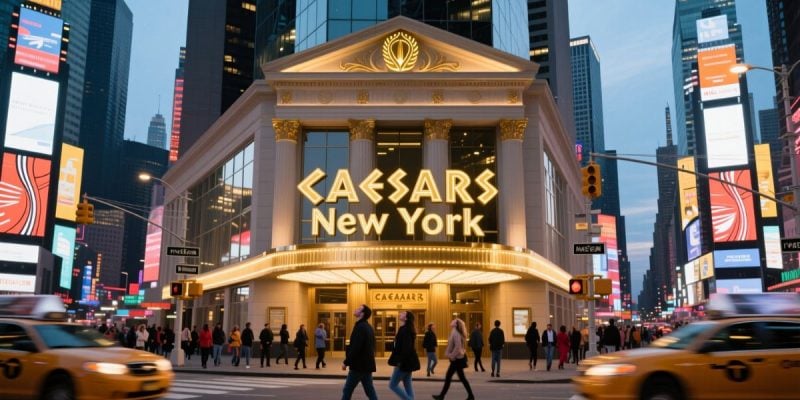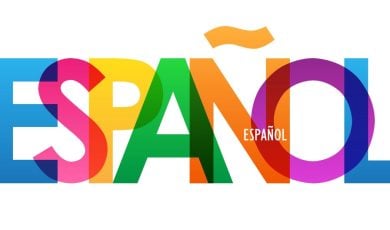New York state is reviewing proposals from Caesars Palace and at least seven other major brands to open a casino in the downstate region. The state will issue only three licenses, and Caesars’ chances of securing one appear to be improving.
However, the deal is far from finalized. Here’s an overview of where things stand and the potential benefits for the city and state.
Community support grows for New York casino bid in Times Square
The bid from Caesars Palace to build a casino in Times Square, in partnership with SL Green Realty Corp. and Jay-Z’s Roc Nation, continues to gain momentum. The Garment District Alliance recently announced its support for the project.
In a letter to the Community Advisory Committee, Barbara A. Blair, president of the Garment District Alliance, highlighted the bid’s potential benefits for local businesses and the community.
That endorsement is a major boost for Caesars’ proposal. More than 300 other organizations and businesses have also voiced support, citing opportunities to collaborate with, rather than compete against, the casino. Supporters include unions, hotels, local restaurants, Broadway stakeholders and residents.
The Garment District Alliance also described Caesars’ bid as the only proposal made “the New York way,” because it would repurpose and renovate existing office space at 1515 Broadway, integrating into the neighborhood rather than displacing it. In response to the endorsement, Brett Herschenfeld, executive vice president at SL Green, said:
“We heard from the Garment District Alliance that the district is in need of capital investment and enhanced security for the public realm. We are proud that Caesars Palace Times Square will directly address these needs with millions in investments that will improve and enhance the area.”
He added: “This project has always been guided by what the surrounding community needs, and we are thrilled to have the support of the Garment District Alliance.”
New York casino vision goes beyond gaming at Caesars Palace
If approved, Caesars Palace Times Square will be more than a casino. While the gaming floor will feature slot machines, table games, poker rooms and more, the developers describe the project as a state-of-the-art gaming and entertainment destination.
The historic Palace Theatre would be renovated and incorporated into the complex to host Broadway-level shows and concerts. Roc Nation would also operate a live music club. Other amenities would include luxury retail shops, world-class restaurants and a new high-end hotel tower.
Projected benefits of Caesars’ New York casino for city and state
The Caesars Palace Times Square project would provide a major financial lift for local businesses. It would raise the city’s profile and attract more tourists, creating greater demand for hotels, restaurants and services.
According to the Garment District Alliance, the casino’s hotel would have a limited number of rooms, restaurants and shops, meaning overflow demand would benefit surrounding businesses. The developers have also pledged millions for infrastructure upgrades, including lighting, pedestrian safety and sanitation improvements along Seventh and Eighth avenues.
Roc Nation is leading the project’s community outreach. According to a KDKS news story, Jay-Z said the casino would benefit both businesses and residents:
“New York City is the entertainment capital of the world, so the idea of a world-class casino here makes perfect sense. I’ve always looked at opportunities that can shift culture while uplifting communities, and Caesars Palace Times Square is exactly that.” He continued:
“We’re creating a hub that draws even more people into the neighborhood, generating new energy, new businesses and new opportunities for everyone. The things Broadway needs – more ticket sales, added security, cleaner streets and jobs that support workers between shows – are what this project will make possible.”
The city and state would also benefit financially. Caesars Palace Times Square, along with the two other New York casinos expected to win licenses, would generate billions in licensing fees and ongoing tax revenue.









